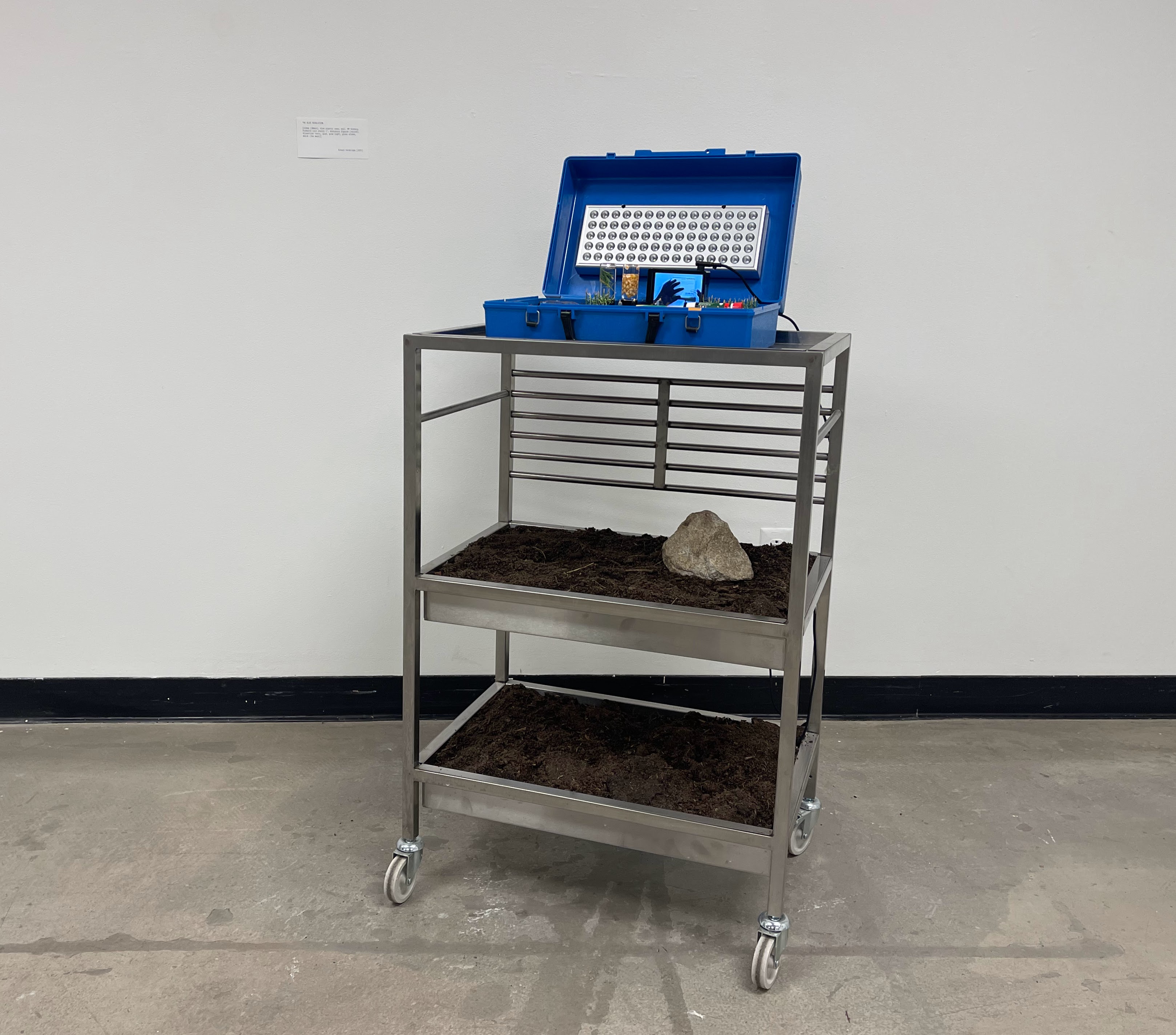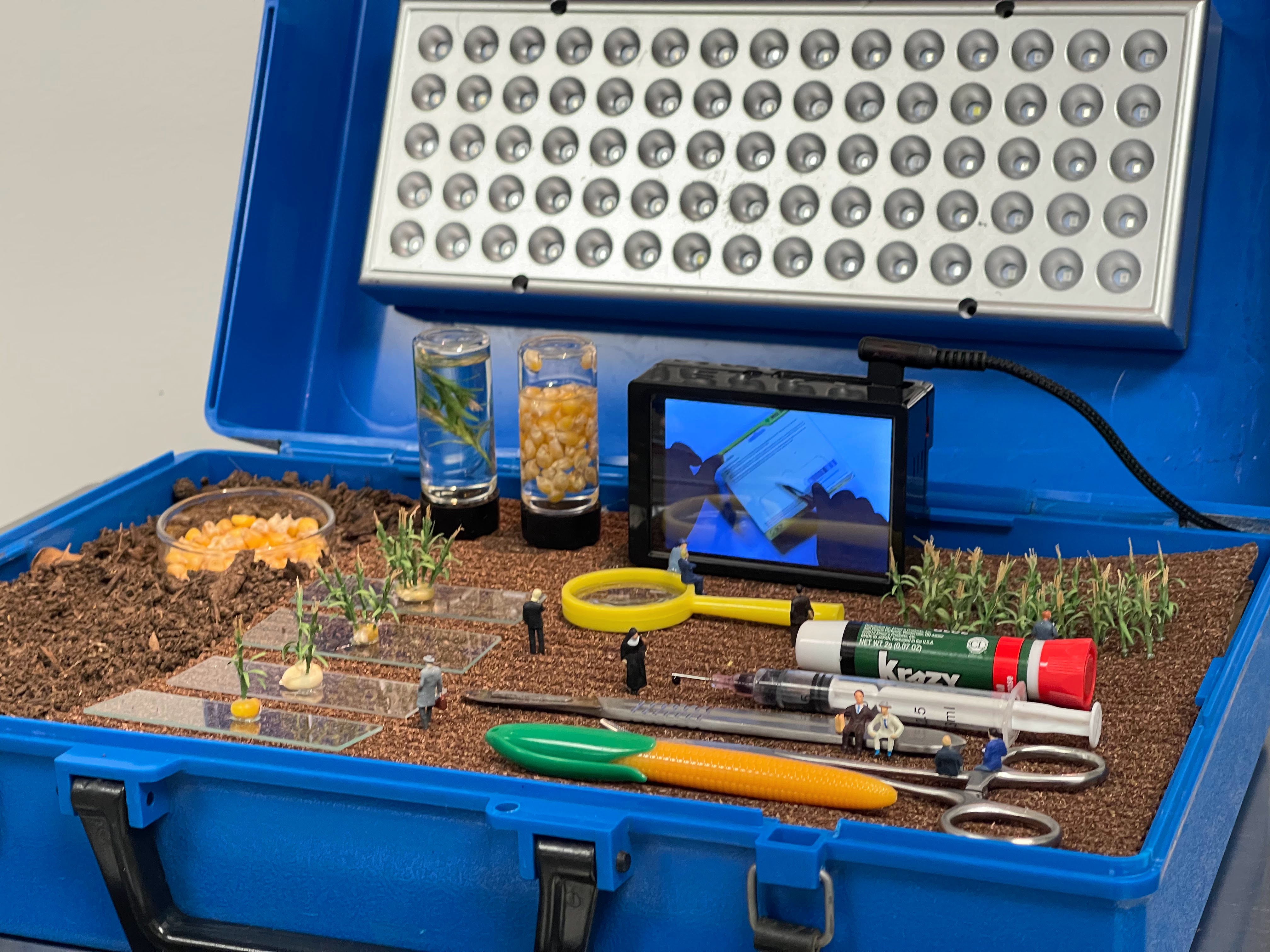The Blue Revolution
Category: Mobile Sculpture
Date: 2022
Location: ARTSCI Gallery (UCLA) Los Angeles, CA
Project Description
“ As a microbiologist, I was trained, or I am trained to look at the ecology of that which we cannot see. And I believe that in that world, in the realm of the unseen, in the realm of the microscopic, we are undergoing a major revolution. This is a revolution that has parallels, only, I believe, in the Great Colombian Exchange, what some people refer to as the discovery of the Americas, which from the biological point of view was really the breaking down of very important barriers that existed before this event, this historical event, and that led us, as we all know, to a major reconfiguration of the biosphere, not to speak about human society, politics, policy, economy, everything.
I believe that we are really part of a similar revolution, which is the introduction of transgenic organisms into the environment. The so-called biotech revolution; some people call it the «blue revolution," as it has as its common theme the breakdown of another very important barrier or sets of barriers that Were not broken culturally, in cultural history, as well as in evolutionary history before. And this is the barrier of the species- the barrier of what one can exchange in terms of DNA between compartments of the environment that before were separate, that we call species. We have acquired the capacity to break down those barriers and to exchange material- genetic material, and informative material-across those compartments. “
“ As a microbiologist, I was trained, or I am trained to look at the ecology of that which we cannot see. And I believe that in that world, in the realm of the unseen, in the realm of the microscopic, we are undergoing a major revolution. This is a revolution that has parallels, only, I believe, in the Great Colombian Exchange, what some people refer to as the discovery of the Americas, which from the biological point of view was really the breaking down of very important barriers that existed before this event, this historical event, and that led us, as we all know, to a major reconfiguration of the biosphere, not to speak about human society, politics, policy, economy, everything.
I believe that we are really part of a similar revolution, which is the introduction of transgenic organisms into the environment. The so-called biotech revolution; some people call it the «blue revolution," as it has as its common theme the breakdown of another very important barrier or sets of barriers that Were not broken culturally, in cultural history, as well as in evolutionary history before. And this is the barrier of the species- the barrier of what one can exchange in terms of DNA between compartments of the environment that before were separate, that we call species. We have acquired the capacity to break down those barriers and to exchange material- genetic material, and informative material-across those compartments. “
-Dr. Ignacio Chapela Michael Pollan, Cannabis, the Importance of Forgetting, and the Botany of Desire (Berkeley, Calif.: Doreen B. Townsend Center for the Humanities, 2002), 42.

